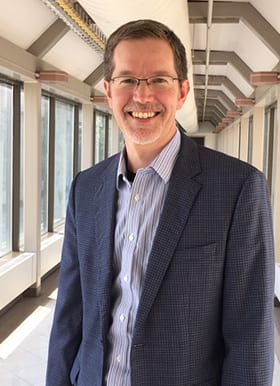
Timothy Miller, MD, PhD
ALS Center Co-Director
Miller Lab Director
David Clayson Professor of Neurology
- Phone: 314-362-8168: Lab
- Email: MillerLab@nospam.wustl.edu
For more than two decades, Dr. Timothy Miller — one of the nation’s foremost researchers into neurodegenerative diseases — has been searching for better ways to treat, prevent and cure ALS.
The driving force behind the ALS Center, Dr. Miller provides clinical care as a practicing neurologist, serves as the Principal Investigator on numerous clinical and research studies, and directs all of the research taking place in the Miller Lab. By coalescing all of these activities under a singular mission, Dr. Miller hopes the ALS Center will serve as a focal point for uniting the advancement of ALS therapies.
His journey started at the Washington University School of Medicine, where he earned his medical degree and PhD in 1998. Here, he discovered his interest in the neuroscience of degeneration. Dr. Miller then completed a neurology residency at the University of California, San Francisco, where he served as Chief Resident in his final year.
Dr. Miller went on to complete a neuromuscular fellowship under the mentorship of an ALS expert. This experience sparked Dr. Miller’s interest in clinical research; he further honed his skills in the University of California, San Diego’s Mentored Scientist Clinical Training Program, where he completed his postdoctoral work on ALS disease models.
In 2007, Dr. Miller moved to Washington University, where he created an ALS translational research program and launched numerous promising trials. Dr. Miller was named the first director of the Christopher Wells Hobler Laboratory for ALS Research at the Hope Center for Neurological Disorders, a center dedicated to improving the lives of people with neurological disorders.
Currently, Dr. Miller holds an endowed chair, the David Clayson Professor of Neurology at Washington University School of Medicine in St. Louis, where he leads the Miller Laboratory and the ALS Center. He directs research into innovative treatments, with a focus on therapeutic strategies that turn off harmful genes in the brain and spinal cord in patients with neurodegenerative diseases.
Dr. Miller received the Sheila Essey Award, which recognizes significant research contributions in the search for effective ALS therapies.
Dr. Miller’s work continues to improve the lives of those diagnosed with neurodegenerative diseases like ALS.